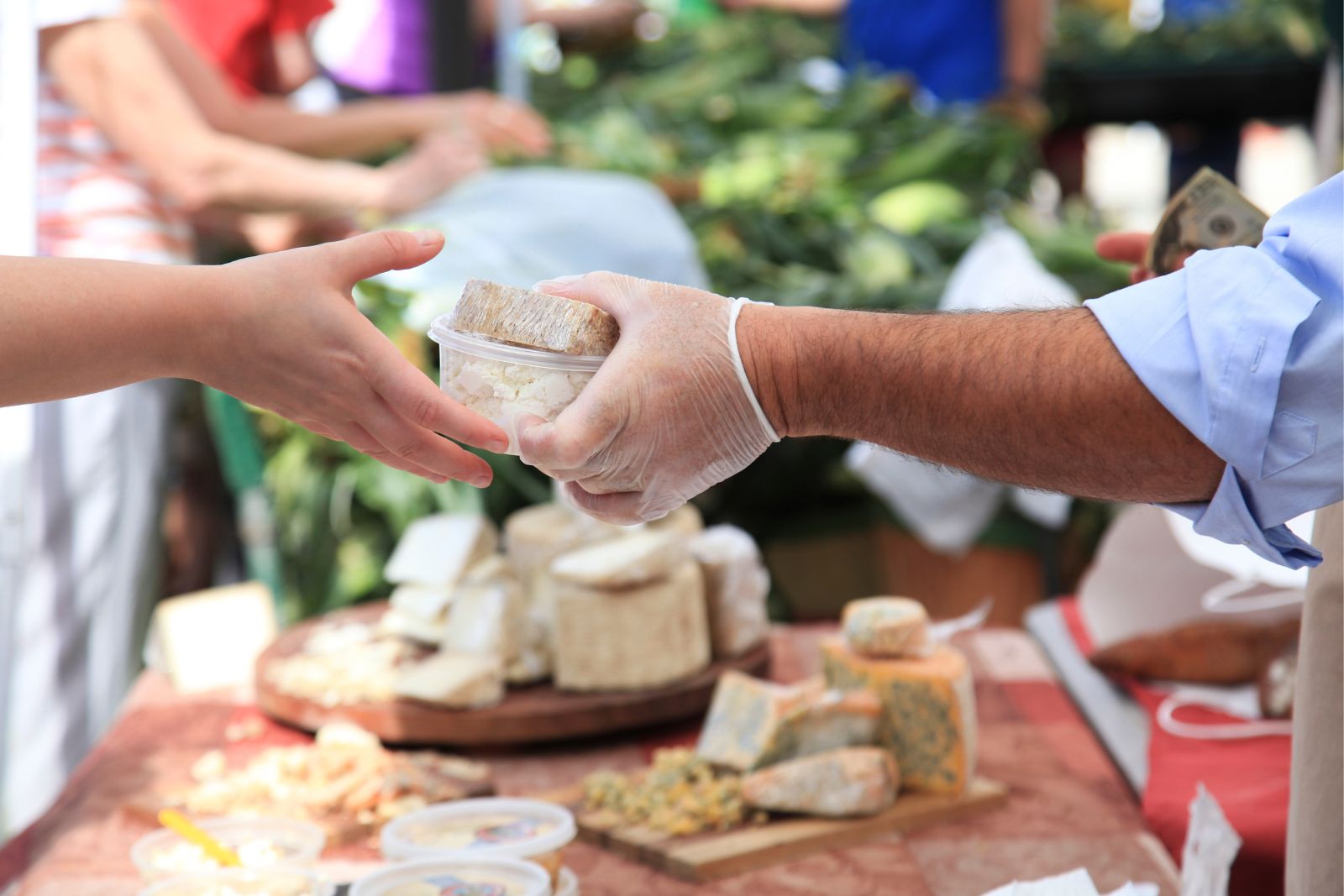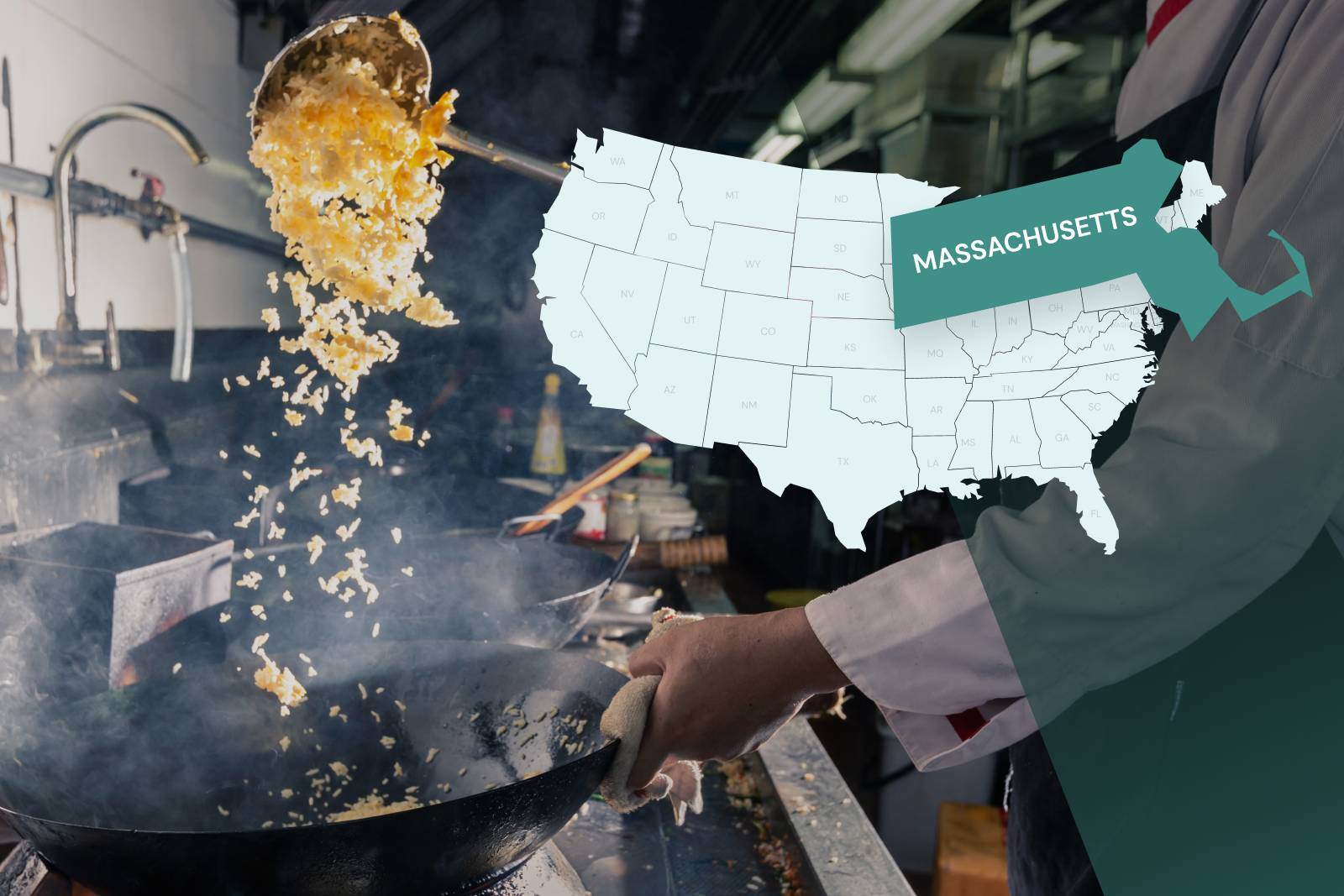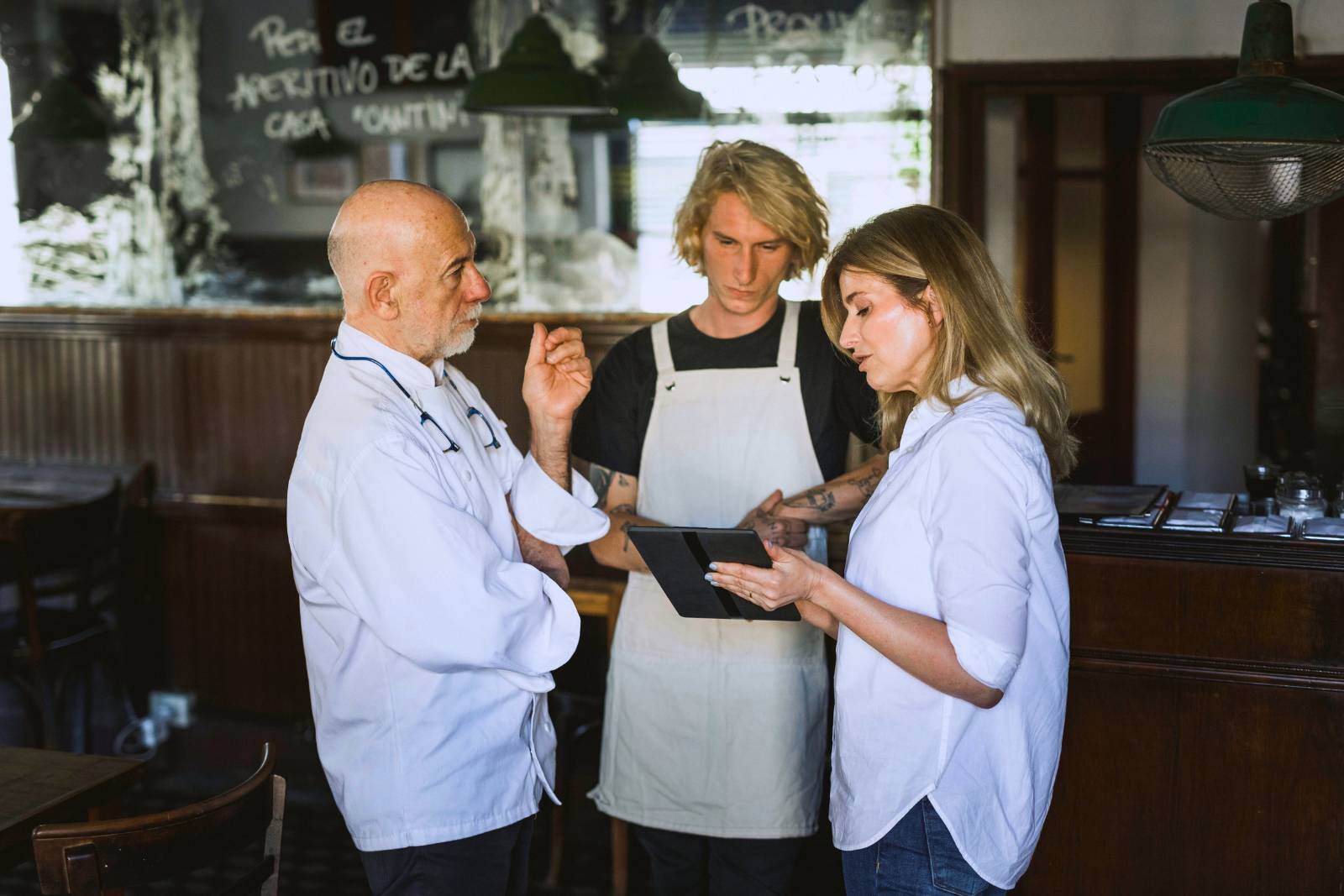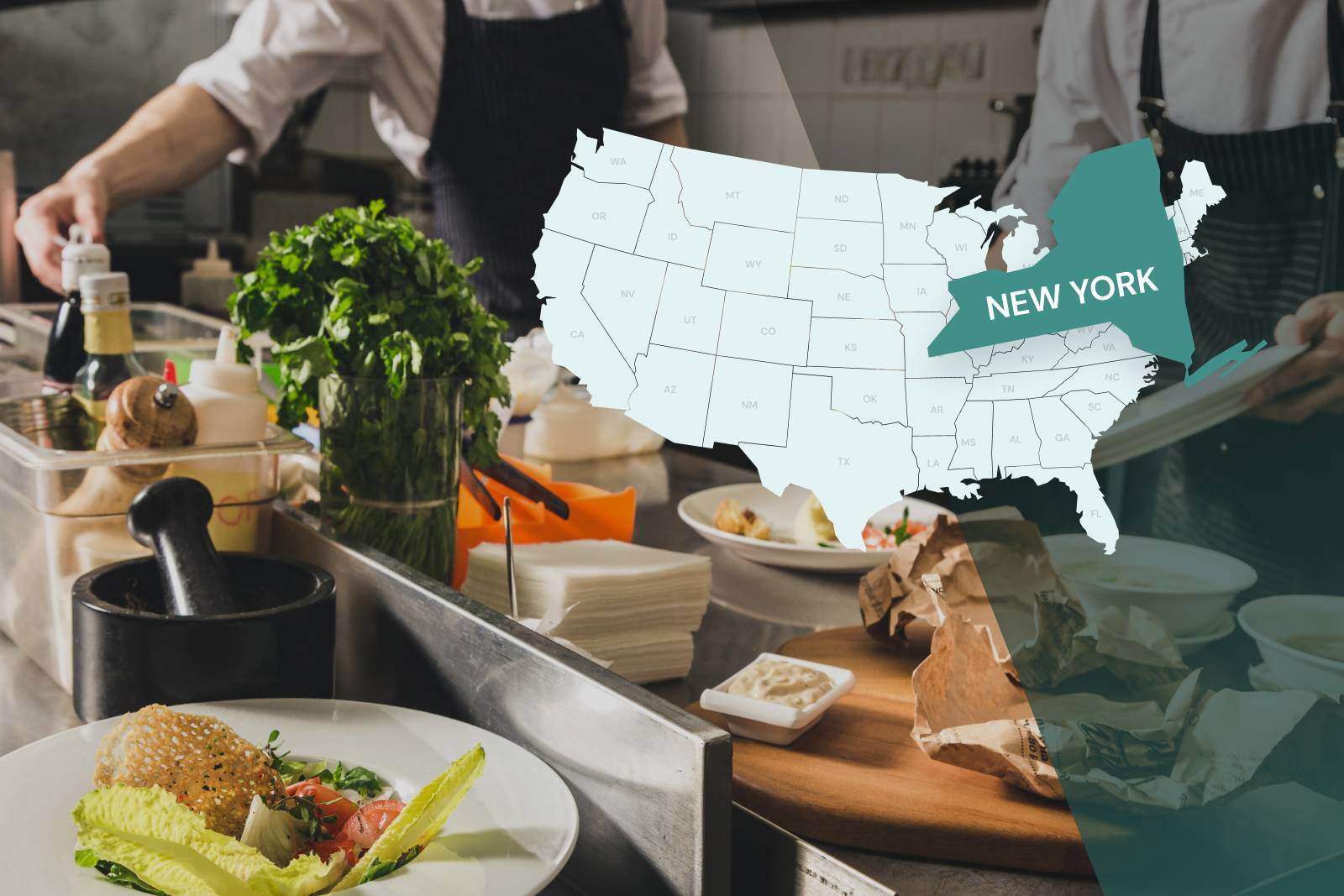With fresh produce, locally sourced meats, and artisanal treats, nothing beats the vibrant energy of a farmers market.
But as much as we all love to indulge in the local flavors and support small businesses, it’s important to remember that food safety must follow us out of the kitchen!
With recent outbreaks of foodborne illnesses making headlines, from the infamous spinach fiasco of 2006 to the tomato and jalapeno contamination of 2008, it’s more important than ever to take extra precautions with what we eat and what we serve in our establishments–and those food safety rules apply to farmers’ markets, too.1
Whether you’re a vendor trying to keep your customers safe when you’re selling at farmers’ markets or a savvy shopper looking to make informed choices for your foodservice establishment, this post has all the tips and tricks you need to make sure you’re staying safe (and eating local at the same time).
Here’s what we’ll cover:
Understanding the Farmers Market Environment
Best Practices for Farmers Market Food Safety
Regulations and Guidelines for Farmers Market Food Safety
Understanding the Farmers Market Environment
Whether you're selling at a farmers market or simply buying from one, it's important to understand the unique challenges of managing food safety in this environment.
One of the main challenges of managing food safety in farmers markets is the lack of control over the environment. Unlike traditional restaurants or storefronts, outdoor markets are exposed to the elements, making food vulnerable to contamination by dirt, dust, insects, and other outdoor contaminants. While you can’t control everything, you’ll want to do everything in your power to make sure these risks are mitigated as much as possible.
Another challenge is the lack of regulation. While restaurants are heavily regulated by government agencies, farmers markets are typically self-governed. This means there are no standard rules or guidelines for food safety, leaving it up to the vendors and organizers to take extra precautions.
That said, most states do have laws in place regulating what can and cannot be sold at farmers’ markets (and standards underlining procedures that should be followed at these sales, too, though these aren’t always written into law).
Because of this, as a vendor or someone purchasing food at a farmers market, you need to take responsibility for the products you’re buying or the products you’re selling.
Here are a few more key differences between the farmers market environment and other food sales or food service establishments:
-
Source of food: At a farmers market, the food is typically grown and produced locally, so it is often fresher and less processed than food at a grocery store or restaurant. This means it is often more flavorful, but it also requires extra attention to food safety.
-
Preparation: Unlike restaurants, where food is typically prepared on-site, farmers market vendors often prepare food at home or in a shared commercial kitchen (most states require an inspected kitchen to be used). This means additional steps need to be taken to ensure the preparation and storage of food is safe.
-
Temperature control: In a restaurant, there are strict rules around temperature control, including the use of refrigeration, heating, and cooling equipment. At a farmers market, vendors may not have access to this equipment or may not have the means to keep their products temperature-controlled at all times.
Best Practices for Farmers Market Food Safety
Now that you know some of the challenges associated with selling or buying food at a farmers’ market, let’s take a closer look at how you can address these issues.
Make Sure You Have the Proper Licenses and Permits
First and foremost, it's essential to make sure you have the proper licenses and permits. Each state has its own set of regulations when it comes to selling food, so make sure you do your research and obtain any necessary permits and licenses. This may include a food safety certification or a permit from the local health department.
In any event, it's better to be safe than sorry. If you're not sure about what permits you need, reach out to your local health department or farmers market association for guidance.
Follow Proper Food Handling Techniques
Next up, follow proper food handling techniques. This means storing your food at the correct temperature and packaging it properly. It's also important to regularly wash your hands and maintain a clean work environment.
Sanitize Equipment
Take the time to make sure everything has been thoroughly cleaned and sanitized. This includes cutting boards, knives, and any other utensils you use to prepare your food. You may also want to invest in a good sanitizer solution for your booth, especially if you have a high volume of customers. It's always better to err on the side of caution when it comes to food safety.
Take Steps to Minimize Cross-Contamination
Next, let's talk about cross-contamination. This is when harmful bacteria or other substances are transferred from one food to another. To minimize this, you need to keep foods separate from each other. This means using separate containers, utensils, and cutting boards for different types of food.
So, if you're selling a variety of fruits and vegetables, make sure to keep them separate and avoid chopping them all on the same surface. This simple step can go a long way in preventing foodborne illnesses.
Keep Food Products Stored Off the Ground
This may seem like common sense, but it's surprising how often we see food being stored on the ground at farmers markets. This can lead to contamination from dirt, dust, and other debris.
Instead, use tables or other elevated surfaces to store and display your food. If you must store them on the ground, use clean and sanitized containers or crates.
Consider Bringing Portable Hand Washing Stations
As foodservice professionals, you know how important it is to wash your hands frequently and properly. But what if you don't have access to sinks and soap at the farmers market? That's where portable hand washing stations come in handy.
These can be set up anywhere and provide a convenient way to wash your hands on the go. In fact, many farmers markets now set these up for their customers and vendors as a courtesy. Ask your farmers’ market if this is a possibility, or look into renting or purchasing these yourself–they’re a smart investment in food safety.2
Don’t Reuse Bags or Egg Cartons
Reusing bags and egg cartons might be great for the environment, but it’s not so great for food safety. It’s just not worth the risk.
Dirt, bacteria, and other unsavory things can easily accumulate on these items, leading to cross-contamination and potentially dangerous consequences. Plus, it’s always better to present your products in fresh and clean packaging to attract your customers.
Only Serve Ready to Eat Foods if They’re Prepackaged
Ready-to-eat foods include items like salads, sandwiches, and baked goods that can be eaten without further cooking or preparation.
While these items may be convenient for customers, they can pose a risk to public health if not handled properly. The key to safe ready-to-eat foods is to ensure that they are prepackaged, meaning they are prepared in a commercial kitchen and sealed in airtight containers to prevent contamination.
If you're a farmer or a chef who plans to sell ready-to-eat foods at the market, it's important to consult with your local health department to determine the legal requirements for packaging and labeling.
Practice Proper Temperature Control
Proper temperature control is critical to prevent foodborne illness and ensure that your products are safe for consumption. This includes both hot and cold foods. Hot foods should be kept at a temperature above 140°F, while cold foods should be kept at a temperature below 40°F.
Monitor the temperature of your products throughout the day, using a thermometer to ensure that they remain within the safe range. If you're selling perishable items like meats or dairy products, again, be sure to store them in a refrigerated unit or cooler to prevent spoilage.
Gloves Are Great, But Not a Substitute for Handwashing
Let's face it–gloves make things easier. They protect the food from bacteria on your hands and are easy to replace when they get dirty.
However, it's important to remember that gloves are not a substitute for handwashing.3 You should always wash your hands before putting on gloves and after you've taken them off. And if you switch from handling raw meat to vegetables, don't forget to change your gloves!
Create Clear Systems
Clear systems are key to keeping everything running smoothly and safely. For example, if you're handling money, make sure to designate one person to do that and another person to handle the food. This helps prevent cross-contamination. Also, make sure your food is clearly labeled with the date and time it was prepared so customers know it's fresh.
Cover Your Table with a Tent or Canopy
You may not have thought about it before, but covering your table with a tent or canopy can help prevent contamination. Imagine if a bird flew over and dropped something on your food–not exactly appetizing! Plus, sun protection can help keep your products fresh and prevent spoilage, not to mention it will keep you much more comfortable as you go about your busy day.
Sanitize Food Prep Surfaces
Sanitize, sanitize, sanitize. This should be your mantra when it comes to food prep surfaces. Before you start cutting, dicing, and chopping those delicious veggies, make sure to thoroughly sanitize any surfaces that will be in contact with the food. This includes cutting boards, countertops, and knives.
When it comes to sanitizing, a solution of one tablespoon of bleach per gallon of water does the trick. And don't forget to change that solution regularly!
Dry Produce With a Clean Cloth or Paper Towel, and Try Not To Sell Overly Damaged Produce
If you’re a farmer selling your produce at the farmers market, make sure your fruits and vegetables are properly cleaned and dried. No one wants soggy green beans or slimy strawberries. Use a clean cloth or paper towel to dry your produce, and avoid selling any that are overly damaged or bruised.4
This ultimately isn’t just a matter of cleanliness–it’s also better for business.
Change Out of Clothing Worn in Animal Production Before the Sale
If you're selling animal products alongside fresh produce, it's crucial that you change out of any clothing that you wore during animal production before the sale.
The last thing you want is for any animal products to come into contact with your fresh produce and contaminate it. It's better to be safe than sorry, so make sure you change into a clean outfit before handling any food items intended for sale.
Cover Samples Up to Prevent Contamination
Offering samples to potential customers is a fantastic way to attract interest, but it's important that you cover up and protect these samples to prevent any contamination from airborne pollutants or bacteria.
Invest in some covers or use small plates to protect each sample, and make sure you keep them at a safe temperature to prevent spoilage.5 Avoid having bulk jars that a customer can get into on their own and instead prepare the sample for the customer (using single-use samplers, like toothpicks or small disposable cups, is another wise move).
Nobody wants to eat a spoiled sample, and it could potentially harm your business if a customer becomes ill after trying one.
Regulations and Guidelines for Farmers Market Food Safety
The FDA's Food Safety Modernization Act (FSMA) is the overarching federal law that governs food safety in the United States. However, individual states may have different regulations that exceed the requirements of the FSMA.
At the federal level, food safety regulations depend on a farm’s income. Those who make less than $25,000 in food sales are completely exempt from food safety rules, while those who gross more than $500,000 per year are subject to more rigorous inspections.6
While the FDA's FSMA sets the groundwork for food safety regulations, individual states can have differing requirements that go beyond the national guidelines.
The regulations for food handling at farmers markets are generally similar, but there are some differences that can be found between different states. For example, some states require that farmers market vendors have a food safety certification, while others do not.
Some states require that vendors have a food handler's permit, while others do not. In many states, the income restrictions (or leniencies) described above do not apply at all, and all producers must abide by the same rules (more or less).
For example, some states require vendors to have a food handler's license or certification, while others do not. Some states may require vendors to have liability insurance, while others do not.
One of the most significant discrepancies between states is the regulation of cottage food operations.
Cottage food operations are businesses that produce food products in a home kitchen rather than a commercial kitchen. Some states allow cottage food operations to sell their products at farmers markets, while others prohibit it. In addition, some states only allow certain types of food to be sold by cottage food operations, while others are more permissive.
Another area of discrepancy is the regulation of raw milk. Raw milk is milk that has not been pasteurized to kill harmful bacteria. Some states allow the sale of raw milk at farmers markets, while others prohibit it entirely.
The main takeaway here is that it’s incredibly important to do your research and make sure you’re educated on what you need to do, have, or know before you start selling food at a farmer’s market. And if you’re buying food, it’s smart to brush up on the regulations, too, to make sure everything is as it should be.
The Takeaway
Food safety is a crucial aspect of any foodservice operation, especially at a farmers market where the ingredients come straight from the source.
To make sure that you're providing the best quality products to your customers, it's important to not leave anything up to chance. That's where Trust20 comes in–our suite of food safety products can help you stay in compliance and save time, all while keeping your customers happy and healthy.
So, whether you're a seasoned farmers market vendor or just starting out, take a moment to check out Trust20 and learn more about how we can assist you in the world of food safety.
Your customers (and your business) will thank you for it.
Sources
-
Farmers Market Federation of New York: Food Safety
-
Cornell Cooperative Extension of Jefferson County: Food Safety Recommendations for Farmers Markets
-
South Dakota State University Extension: Food Safety from Production to the Farmers Market
-
Health Unit: Food Safety Guidelines for Farmers Markets FACT SHEET
-
Susan M. Leaman: Food Safety at Farmers' Markets






